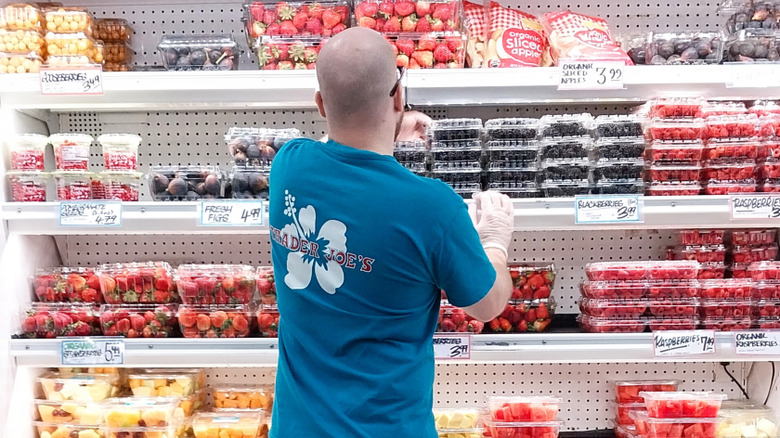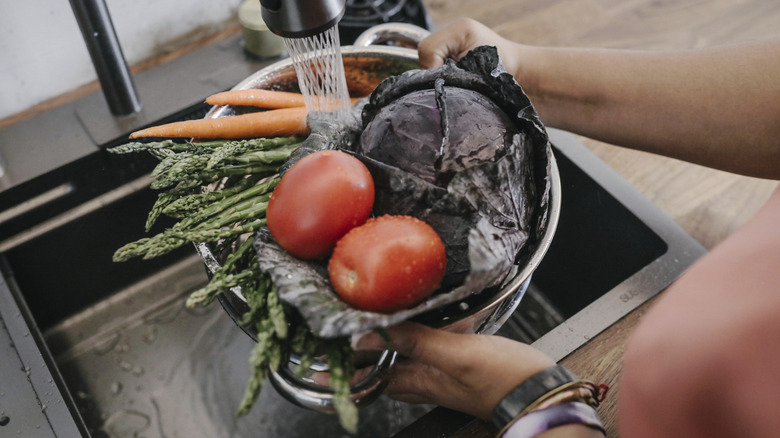Why Does Trader Joe's Produce Go Bad So Quickly?
Trader Joe's is perhaps one of the most beloved grocery chains open today. Devoted customers flock to the tiki-themed store to pick up inexpensive wine, tasty snacks, and lots of seasonal treats. Yes, TJ's has a lot of amazing products (including Trader Joe's frozen hash browns). However, this doesn't mean that Trader Joe's is without fault. In fact there is one category in which the chain seems to stumble: produce. For all of its delicious snacks and frozen foods, Trader Joe's is not known for quality produce. In fact, many fans (and critics) of the chain have taken umbrage to the relatively short shelf life of its fruit and vegetables.
This seems to be a relatively universal opinion. So what gives? Why does Trader Joe's produce tend to go bad so quickly? It comes down to one simple factor: plastic. Many fruits and vegetables sold at the store are packaged in plastic bags or containers. This plastic packaging traps gases, heat, and moisture, all of which accelerate a fruit or veggie's decay. This can cause items to spoil prematurely. Another potential factor is the company's tendency to maintain long term relationships with vendors, which helps keep prices low, but can contribute to unstable quality in its produce items. Either way, you might want to keep to the snack aisle at Trader Joe's, and pick up your veggies somewhere else.
How to keep your produce fresh
Ok, but let's say you have to buy your produce from Trader Joe's. How do you pick the best possible product and how can you keep it fresh? First, you'll want to carefully examine your item for any signs of spoilage. This is especially true of bagged greens and berries. Make sure to look out for any wilting, browning, or mold. You'll also want to eat these items within a few days, as they tend to spoil quickly. Also be sure to buy produce at the correct ripeness. If you're planning on having avocados in a few days, aim for a firmer, greener fruit. And if you're hoping to eat your avocado as soon as you get home, go for the darker, softer avocado. Or, you can ripen your avocado yourself at home.
In terms of storage, there are a few tips to help extend your produce's shelf life. For starters, you will want to remove any excess plastic packaging from your produce. So unwrap your cucumber and remove your apples from their plastic tote. You'll also want to store your countertop fruits and veggies away from each other, in a place with open airflow so that there isn't a buildup of ethylene gas, which can cause premature spoilage. And, hey, sometimes fruits and veggies simply go bad. So make sure to toss anything that's gone brown, mushy, or moldy, as well as anything that has taken on an unpleasant odor. Fresh produce tastes best when it's, well, fresh.

